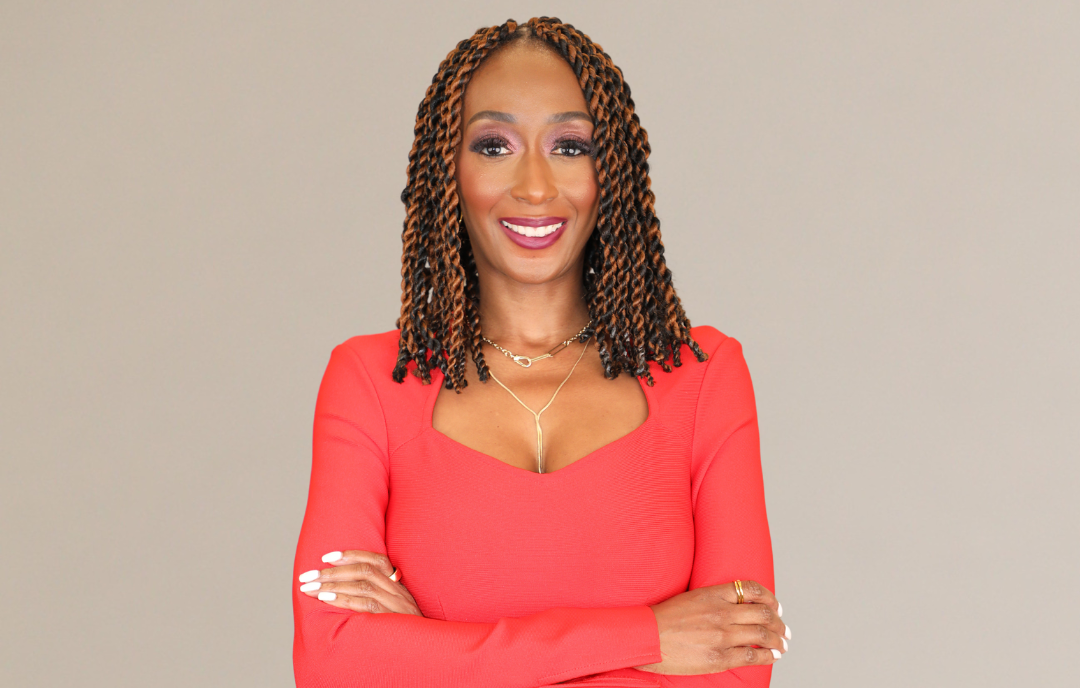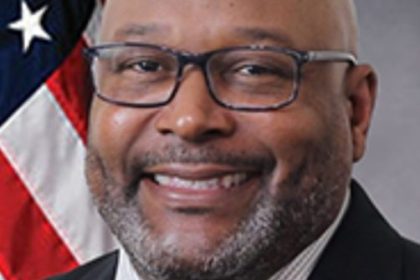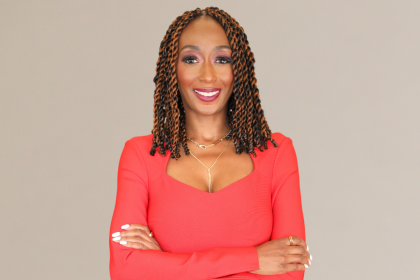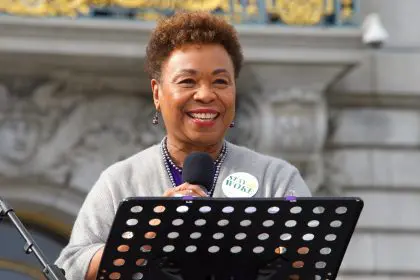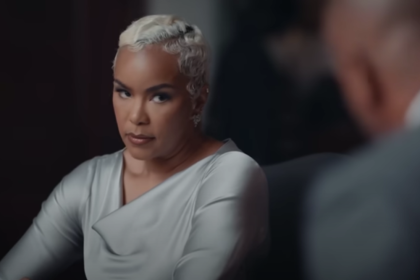The morning A’shanti F. Gholar decided to transform American politics began with an Uber ride and an email. It was 2018, and Gholar, then political director at Emerge, was en route to conduct a training in Texas when she opened a message from a young woman seeking advice on entering politics. Though exhausted from her travel schedule, something about this particular request resonated differently. “I’m literally where I’m at because of other Black women who lifted me up, believed in me, saw things in me I didn’t see in myself,” Gholar recalls, her voice carrying the unmistakable cadence of someone who has told this origin story many times but still finds meaning in its retelling. “I’m very much about paying it forward.”
That moment of reflection sparked what would become The Brown Girls Guide to Politics, first as a blog, then as an award-winning podcast, and eventually helped propel Gholar to the presidency of Emerge, the nation’s largest organization dedicated to recruiting and training Democratic women to run for office.
Seeing women into power
In February 2020, just as the pandemic descended, Gholar stepped into her role as president. Under her leadership, Emerge has trained over 6,000 women, with alumni winning elections at every level of government. When asked about her superpower, Gholar responds without hesitation: making women feel seen.
“Every year at Emerge, I call our alums that win, and I also call our alums that don’t win,” she explains. “Because when you don’t win, the phone stops ringing, no one really cares anymore, and I think that’s upsetting.” This practice has become a signature part of her leadership philosophy. After the 2024 election, she received particular gratitude from Black women candidates. “Thank you for seeing me,” they told her, a sentiment that has confirmed for Gholar that visibility itself can be transformative.
For Gholar, this work feels both personal and historical. She traces her political awakening to childhood, when she discovered C-SPAN and became enthralled by the parliamentary procedures, state geography, and impassioned debates she witnessed. “I was just so fascinated with this thing called politics, didn’t know what it was called, but immediately, as a young girl, I knew that I didn’t see a lot of people that look like me. I didn’t see a lot of women. I didn’t see a lot of Black and brown people.”
That early observation has informed her entire career trajectory. After working for Congresswoman Shelley Berkeley and volunteering on countless campaigns where women were breaking barriers (“back then, pretty much, whenever a woman was running, it would mean she would be the first”), Gholar found her place at Emerge as it was establishing its Nevada affiliate. What attracted her was the organization’s commitment to building lasting infrastructure rather than parachuting in for elections and then abandoning communities afterward.
The new American majority
Upon taking the helm of Emerge, Gholar led the creation of a 15-year strategic vision focused on what she calls “the new American majority” — women of color, LGBTQ+ women, young women, and unmarried women. “It was very obvious that the new American majority was going to continue to rise,” she explains. “They are a growing political force at the ballot box.”
The strategy is already yielding results. Emerge’s Seated Together program, designed specifically for Black women elected officials seeking higher office, has produced three members of Congress from its first three cohorts: Emilia Sykes of Ohio, who co-founded the program; Janelle Bynum, the first Black woman to represent Oregon in Congress; and LaMonica McIver of New Jersey, who won a special election to replace the late Congressman Donald Payne Jr.
This focus on helping women ascend to higher office challenges what Gholar calls a patriarchal tendency to tell women, especially Black women, to “bloom where they’re planted.”
“Oh, just be happy! People voted for you and you won, and you get to be in here making decisions,” she says, mimicking the dismissive tone many women in politics encounter. “No, we can continue to ascend.”
Micro resistance in challenging times
As the country navigates a politically fraught moment, Gholar offers practical advice for women feeling overwhelmed by the current landscape. “The burnout, the non-participation, the disengagement is what they want,” she asserts, referring to political forces she sees as hostile to women’s advancement. “Part of the plan is to make us feel unseen.”
Her antidote is what she calls “micro resistance” — sustainable, everyday activism integrated into normal routines. “Think about the ways that you can incorporate activism into your everyday life,” she advises. “If you go to church every Sunday, let people know that you’ll be coming a little bit early, or you’ll be staying a little bit late, so you all can organize.” She suggests parents in PTAs offer to draft template letters to school boards, or that friends text each other about local issues and candidates.
“I think we’ve just gotten so accustomed, especially because of the history in our country—we’re marchers, we’re fighters, we’re a million people strong. That’s what we’ve always seen, and if we don’t see it, then we think that action isn’t happening,” Gholar says. “Those little things are what will continue to make sure that we are a country that fights back and uses our voices.”
A vision for collective power
At 44, with accomplishments that include founding a podcast that professors now include in their curricula and leading a national organization through unprecedented political times, Gholar remains focused on a simple but profound legacy, “Just to let women know that they belong, that there is absolutely space for them in politics.”
She speaks with particular urgency about the historical context. “A lot of people like to reference the 19th Amendment and women getting the right to vote. We know that was for some women, not all women, and we have to realize it hasn’t been a hundred years for a lot of us, and we’re just getting started.”
For Gholar, the work continues through both institutional change and personal practice. She describes her own journey to prioritize self-care—from chiropractic appointments and acupuncture to using the app Opal to limit social media consumption to one hour daily.
“If you can get five minutes of quiet a day, I think everyone should consider that self-care because it is a game changer for your mental state,” she says.
In a political moment when female identity itself has become contested terrain, Gholar’s work offers a resolute counternarrative. There are 520,000 elected offices in America, she reminds us, most at the state and local level where the most direct impact on daily life occurs. For every woman who decides to step forward, Emerge stands ready with training, community, and a leader who promises to see them, win or lose.

